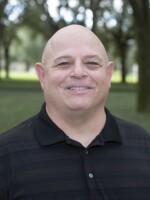To address the ongoing opioid crisis, the Florida Department of Health on Wednesday announced a plan to increase access to naloxone throughout the state.
The plan is for health departments in all 67 counties to have naloxone kits with two nasal sprays that can be administered without the help of a health care provider.
During the initial phase, 16 counties are each receiving 1,500 kits: Baker, Bradford, Union, Franklin, Gulf, Gadsden, Gilcrest, Levy, Glades, Hendry, Hamilton, Hardee, Jefferson, Madison, Lafayette and Suwanee.
The next phase will expand distribution to the remaining counties within the next couple months, according to Dr. Ulyee Choe, statewide medical director for county health systems and director of the Florida Department of Health in Pinellas County.
"The importance of naloxone is that it is life-saving, it ultimately gives someone an opportunity, if they get the [overdose] reversal to get the treatment that they really need," he said. "It's giving people a second chance."
The medication, distributed in a nasal spray under the brand name Narcan, reverses the effects of an opioid overdose by restoring breathing and consciousness.
“Addressing the opioid epidemic is a top priority for the state,” Deputy Secretary for Health Dr. Kenneth A. Scheppke said in a statement. “In 2021, almost 8,000 people in Florida lost their lives to drug overdoses, the highest one-year total ever recorded in our state.”
According to the health department, increasing access to naloxone is a key component in battling the opioid epidemic, especially in rural areas or counties with limited access to health care.
"And these clinics can act as a resource hub for things like education, awareness, list of substance use disorder providers, instructions on how to use naloxone and if needed, testing or any vaccines," said Choe.
This initiative is part of the state's response to the overdose crisis. On Aug. 3, Gov. Ron DeSantis launched the Coordinated Opioid Recovery (CORE) program to provide comprehensive and sustainable care to those affected by substance use.
That ratcheted up the state's battle against opioid addiction with a focus on fentanyl following a mass-overdose incident in rural Gadsden County in July that authorities said caused nine deaths. Gadsden County Sheriff Morris Young said emergency responders were called to 19 overdoses over a four-day span.
The new naloxone plan is also a complement to the state's HEROS program (Helping Emergency Responders Obtain Support), which provides free naloxone to emergency response agencies.
To find providers of naloxone, visit isavefl.com.





